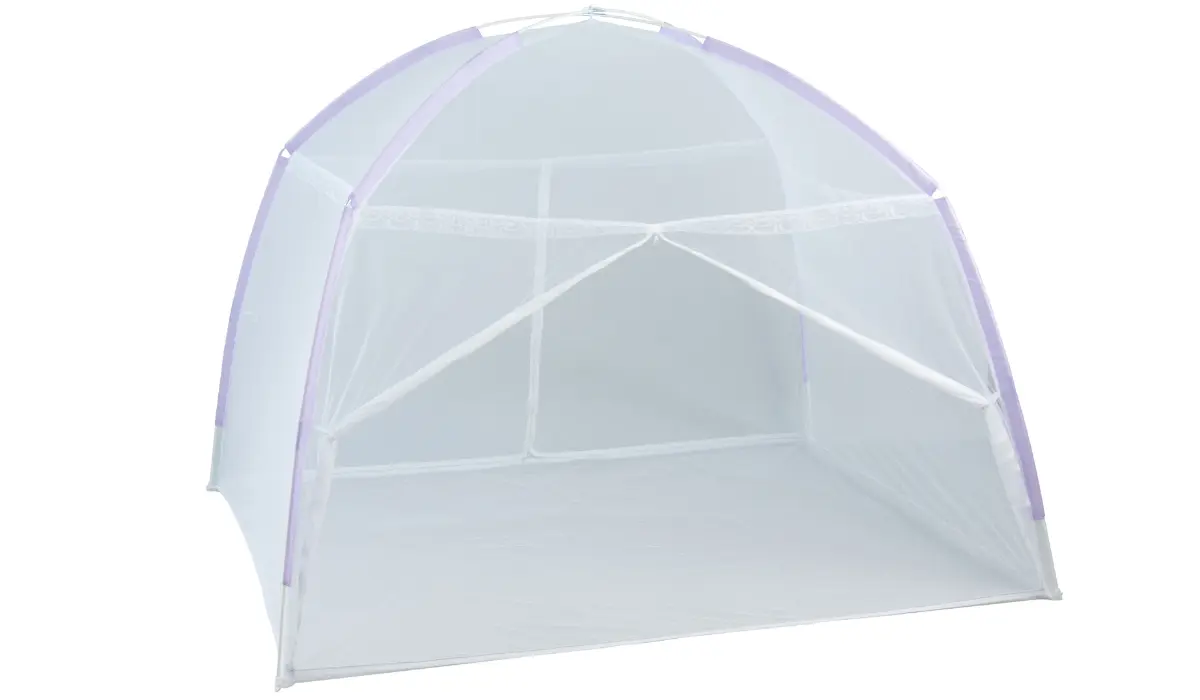How to Keep Mosquitoes Off Your Dog This Summer
Mosquitoes can be more than just a nuisance; they can pose serious health risks to your furry friend. Using canine-friendly mosquito repellents can help protect your dog from these pesky insects.
Besides mosquito sprays, how else can you ensure your dog stays mosquito-free? Keep reading to learn more tips and tricks to keep your dog safe and comfortable all season.
Key Takeaways
- Dog-specific products like sprays, collars, and solutions with permethrin, deltamethrin, and fipronil are effective and exclude harmful DEET.
- Mosquito exposure is significantly reduced by using traps, insect-repellent clothing for dogs, and making environmental changes like removing standing water and planting repellent vegetation.
- Mosquito nets provide a direct barrier protecting dogs from bites in their sleeping or play areas.
- Maintaining a mosquito-free environment for dogs requires regular grooming, heartworm medication, and possibly professional pest control.
How to Create a Mosquito-Repellent Zone for Your Dog
As pet owners, various methods can be used to keep different mosquito species off your dog and create a safer, mosquito-free zone for your furry friend.
Mosquito Repellents for Dogs
Mosquito-repellent products specifically designed for dogs can be very effective. These products are formulated to be safe for canine use.
Unlike some human insect repellents, they don’t contain harmful ingredients like DEET that can cause problems in the nervous system.
To make the best choice, consider the type of repellent and its active ingredients. Here's a comparison:
Repellent Types | Active Ingredients | Application |
Sprays | Permethrin | Apply to the dog's coat |
Collars | Deltamethrin | Worn around the neck |
Topical Solutions | Fipronil, S-methoprene | Apply between shoulder blades |
Natural Repellent Options
Natural mosquito repellents can be an excellent choice for those who prefer chemical-free solutions for keeping mosquitoes away.
Essential oils from lemon eucalyptus, geranium, and citronella plants are known for their mosquito-repelling properties. However, these oils can be toxic to dogs and should not be used directly on them.
If you use these oils around your home, always dilute them properly in spray bottles and keep them out of your furry friend's reach.
Mosquito Traps

To effectively reduce the presence of mosquitoes on your property, consider incorporating these specific types of traps into your pest control strategy:
CO2 Traps: Install carbon dioxide traps around your property to attract and trap mosquitoes.
UV Light Traps: While generally less effective alone, combining UV light traps with other measures can help reduce the local mosquito population.
Wear Protective Clothing and Accessories
Dressing your dog in protective clothing can keep mosquitoes at bay without bug sprays. This option is handy for dogs that spend a lot of time outdoors.
Look for lightweight, breathable fabrics that cover most of your dog's body without causing discomfort. Items that can be used include:
- Vet-Approved Collars: For those preferring natural methods, consider collars that use natural active ingredients.
- Insect-Repellent Clothing: Jackets and vests treated with insect repellent.
- Bandanas: Infused with repellent oils or chemicals.
- Booties: Protect your dog's paws from insect bites.
Tips for Mosquito Control
Since there is currently no commercially available vaccine for Eastern Equine Encephalitis (EEE) for dogs, modifying the environment where they spend time is another effective strategy for mosquito control.
Some steps to consider:
Steps | Details |
Remove Standing Water | Clear any stagnant water where mosquitoes breed. |
Add Repellent Plants | Plant marigolds, citronella, lemon balm, and peppermint. |
Mow and Trim | Keep the grass short and bushes trimmed to reduce resting areas. |
Dispose of Yard Waste | Regularly clean up leaves and debris to eliminate potential mosquito breeding sites. |
Use Citronella Candles | Place candles around your dog's area to deter mosquitoes. |
Opt for a Mosquito Net

Using a mosquito net can provide a physical barrier to protect you and your dog from mosquitoes. Ensure the net is fine enough to prevent mosquitoes from entering. So, consider these options:
- Outdoor Kennels: Cover the kennel with mosquito netting.
- Dog Beds: Use a net to drape over the bed.
- Portable Nets: Handy for travel or temporary outdoor stays.
How to Prevent Mosquitoes with Year-Round Control
To prevent mosquito-borne diseases, keeping mosquitoes off your dog all year involves consistent grooming, regular heartworm medication, and possibly seeking assistance from professional pest control services.
Maintain Regular Grooming and Care
Regular grooming is essential in controlling mosquitoes around your pet. Crucial grooming tips include:
- Frequent Baths: Use dog-safe shampoos.
- Trim Fur: Keeps your pet cool and less attractive to mosquitoes.
- Check Skin: Look for mosquito bites or skin irritations.
Administering Regular Heartworm Medication
When mosquitoes bite dogs, they can transmit heartworm disease. Heartworm preventative medication kills larvae before they mature into problematic worms.
With regular administration, you are sure your pet is protected year-round. Consider these medication tips in addition to flea and tick prevention:
Aspects | Details |
Choose Comprehensive Medication | Products like K9 Advantix II. |
Follow Dosage Instructions | Given by your vet. |
Regular Schedule | Monthly treatment. |
Is It Time to Call the Experts?
If your dog constantly scratches and shows signs of distress from itchy bites, it may be time to call a professional pest control company (like us at Native Pest Management) for advanced tools and treatments to effectively reduce mosquito populations.
Contacting a veterinarian is also crucial if your dog exhibits symptoms like excessive itching, swelling, or signs of infection. Vets can recommend specific dog-safe bug repellents and treatments.
